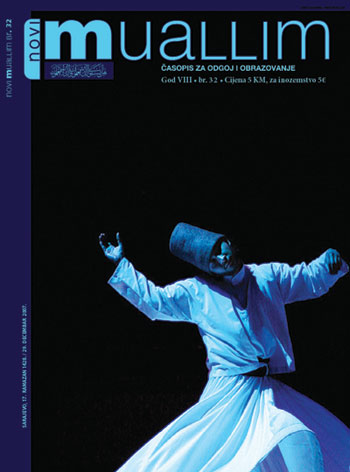NATURE, LIFE AND LOVE IN PHILOSOPHY OF JALALUDDIN RUMI
DOI:
https://doi.org/10.26340/muallim.v8i32.989Abstract
At the occasion of UNESCO’S year of Rumi (2007), in this article we tried to draw the attention to teaching of this great Islamic poet and thinker about nature, life and love that can be found to have a great significance in our conttemporary life and issues that we are facing today within the horizon of modern scientific and techhnological civilization. This teaching is based upon following premises: Transcendent oneness of being (Tawheed) or monism: There is only one reality as the ultimmate source of all the existence. Rumi’s philossophy of evolution is neither mechanicistic nor biological. One can assert that Bergson’s creationnistic philosophy of evolution is closer to Rumi’s teachings. In Rumi’s opinion matter is since the beginning and always spiritual. There is no such thing as creation in time, for time itself is creatted. It is a category of phenomenal conscioussness. God reveals his nature primarily through his names and attributes that are disclosed in all their diversity within phenomenal world. Thus, phenomenal world represents dynamic expresssion of Devine names of power (qahriyya) and gentleness (lutfiyya), greatness (jalal) and beautty (jamal), great secret (misterium tremendum) and fascinating secret (misterium fascinans). Life is found throughout entire existence. There is no such thing as lifeless matter: “earth and water, fire and air”, says Rumi, “are all alive in the eyes of God, although to us they appear dead”. Life is one and it represents oneness. The focal point of all of the Rumis’ work is love. In Rumi’s philosophy love has both, the ontological as well as the ontic meaning. It is at the same time the very secret of life of all the existence and the path to know that secret. Love is the fundamental impulse that is the origin of the unity of the world and life and of all the attractions even those between atoms of which this great poet and philosopher writes in a marvelous manner thus representing the scieentific aspect of his philosophy and bringing to our attention the mystical aspects of our modern science.
Downloads
Published
How to Cite
Issue
Section
License
Naknada:
a. Časopis ne naplaćuje naknadu za obradu članaka (APC) i naknadu za podnošenje članaka.
Autori koji objavljuju u ovom časopisu pristaju na sljedeće uvijete:
- Autori zadržavaju autorska prava i pružaju časopisu pravo prvog objavljivanja, pri čemu će rad jednu godinu po objavljivanju biti podložan licenci Creative Commons imenovanje koja omogućuje drugima da dijele rad uz uvijet navođenja autorstva i izvornog objavljivanja u ovom časopisu.
- Autori mogu izraditi zasebne, ugovorne aranžmane za ne-ekskluzivnu distribuciju rada objavljenog u časopisu (npr. postavljanje u institucionalni repozitorij ili objavljivanje u knjizi), uz navođenje da je rad izvorno objavljen u ovom časopisu.


